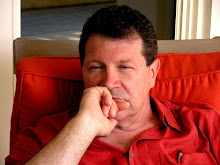
Step Eight: We made a list of all persons we had harmed and
became willing to make amends to them all.
Step Nine: We made direct amends
to such people wherever possible except when to do so would injure them or
others.
Please consider reading the prior article on Step Eight, before reading this article. Click here: Step Eight -- Changing Memories from the Past -- Daily Inspirations: Part One
In Step Eight, we make a list of all the persons we believe we may have harmed, evaluate the reality and level of the harm, determine what action could and needs to be taken to amend or change the situation, relationship, or memory, and become spiritually prepared with a steady and improving level of intimate conscious contact with our God In Step Nine, we take the identified action needed to forgive and release ourselves from the guilt and shame of perceived harms we have done to others.
Understanding the Nature of our Harms
1. As a result of others emotional injuries and/or illnesses, others abandoned and abused us – two major forms of emotional separation.2. In this emotional separation -- abandonment and abuse, we became injured and ill as well. Our injuries and illnesses were caused and perpetuated by our brain’s reactive constriction of emotional energies.3. In our injury and illness, we abandoned and abused others – with our thoughts, words, and/or actions. We “harmed” others.4. Abandonment is where we withdrew our attention, care, and presence (conscious contact) from others – separation – frequently with passive indifference and inability to share our experiences with others.5. Abuse occurred when we actively pushed others away with the force of our anger, rage, and overall negative energy – whether in attitude, actions or words. Typically this abusive and separative “harm” involved exaggerating circumstances to the point of damaging the living human flesh that connected others to us. I remember taking situations that were level two or three in actual problem level, and making them rageful “tens”.6. Abandonment and abuse are about our primitive brains trying to protect us from the ultimate death – separation from persons we are emotionally connected to. Abandonment harms by an internalized constriction of emotional energies, and abuse harms by an externalized discharge of constricted and forceful energy. Separation in either or both forms is an ongoing pattern of harmful perceptions, reactions, and actions that have been programmed into our instinctual brains, forming our ego, our guardian and protector self. I am not a programmer. But my God is.
Definition of “Amends”
“Amends” means to change something about the harm. Ultimately the change we need is self-forgiveness – much more so than the forgiveness of others. And our God holds nothing against us, so we only need to be able to accept their unconditional loving care.
The Serenity Prayer says, “God grant me the courage to change the things I can.” But this follows the more important request, “God, grant me the serenity to accept the things I cannot change.” We will attempt to change or “amend” the things we can, hopefully with the needed level of conscious contact – higher Presence – with our God that allows us to forgive ourselves in the process, and not be dependent on external outcomes.
Four Levels of Amends
In my experience, there are four levels of amends and change involved in this step. It is important to note that “direct” here, in my experience, means with conscious contact (with God, ourselves, and others) and with actual action in some form. The specific level or levels of amends needed will be determined by our level of pain – guilt and shame – attached to the harmful event:
Spiritual principles – principles of healing higher Presence – give us the intimate means to relive and re-experience our pasts-- and have different “outcomes”. Life can become a better and better place as we live by our God’s loving redesign.

Daily Inspirations Jewelry and Gifts .Daily Inspirations Readings
Daily Inspirational Clothing, Daily Inspiration Music
Photography/graphics by W. Wass


No comments:
Post a Comment